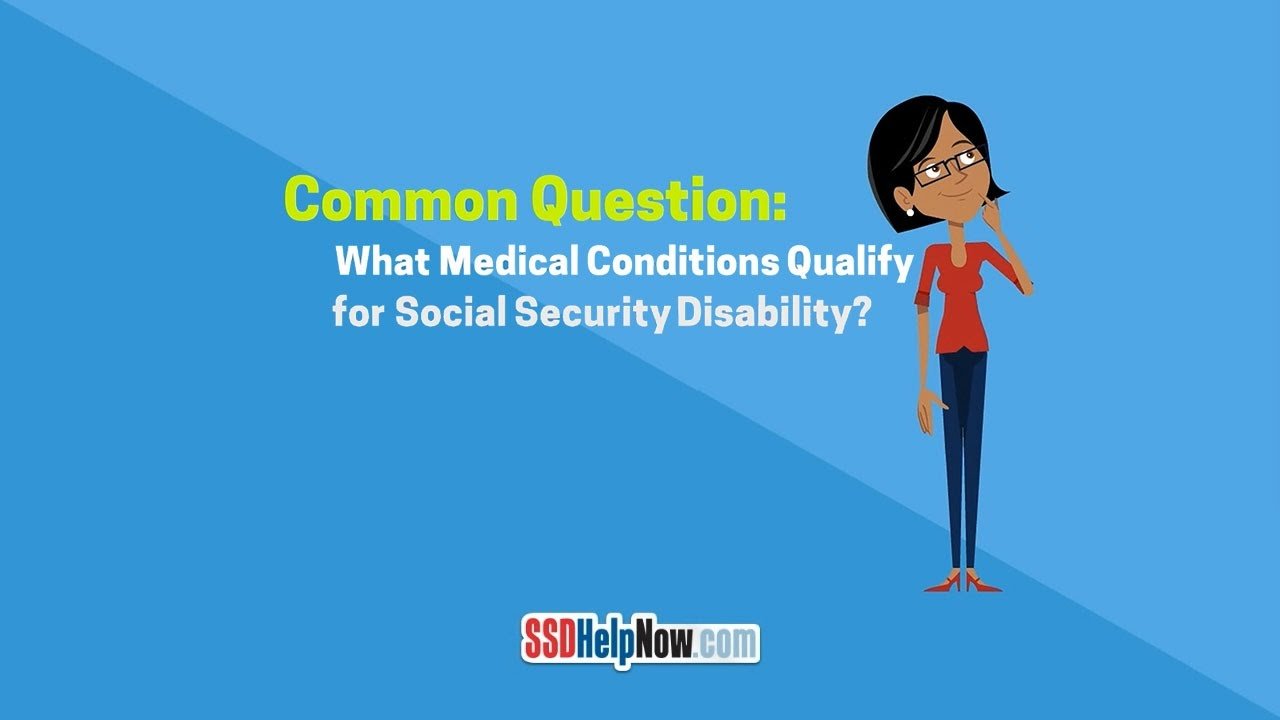Can I Apply For Disability While Working
The short answer is, yes, you can apply for disability while working.
However, you need to be earning under a certain amount and the Social Security Administration may look at the number of hours you are working as well as the type of work being performed to ascertain whether you could be working full time.
The amount that you are not allowed to earn more than is called the substantial gainful activity or SGA limit. If you earn more than that amount, SSA assumes you can do a substantial amount of work and determines that you are ineligible for disability. The 2020 SGA limit is $1,260 per month.
I believe working part-time while you are seeking disability benefits is a very risky proposition, and I am not the only experienced disability lawyer who thinks so.
The SSA might also check how many hours you are working per week. If you are working more than part-time, it may be difficult to persuade the SSA that you cannot work and should receive disability.
As part of the disability claim process, the SSA will be looking into what type of work you are capable of doing. If you have regularly been doing work that you claim you cannot do, this will negatively impact your case.
For example, if you injure your back and are applying for disability while working, it wont help your case if you are working stocking shelves while you wait for approval of your claim.
So to those wondering can I work while applying for disability, the answer is yes, but you will need to:
Medical Related Social Security Disability Requirements
Obviously, these are the requirements everyone focuses on first. Of course, you would not even be asking what qualifies as a disability or how does disability work, if you were not injured or ill. Your doctor says you cannot work for at least the next year, but does your condition qualify? Here are some automatic qualifications.
Social Security Disability Benefits
Social Security Disability Insurance pays out monthly benefits to individuals who have suffered a disability prior to reaching retirement age and no longer have the ability to work. You are required to have worked a set number of years in a job where you paid Social Security taxes in order to be eligible to receive SSDI benefits. This translates into earning a specific number of work credits. In any given year, you are eligible to earn a maximum of 4 work credits. If, when you become disabled, you have not worked the required length of time, but also have a low level of income and assets, you are eligible to apply for Supplemental Security Income instead.
You May Like: Is Breast Cancer Considered A Disability
The Basics About Disability Benefits
The SSDI program pays benefits to you and certain if you are insured. This means that you worked long enough and recently enough and paid Social Security taxes on your earnings. The program pays benefits to adults and children with disabilities who have limited income and resources.
While these two programs are different, the medical requirements are the same. If you meet the non-medical requirements, monthly benefits are paid if you have a medical condition expected to last at least one year or result in death.
Dont Miss: Ssdi Asset Limits 2015
Disability Application Checklist Item #: Your Us Military Service Papers

Obviously, this disability application checklist item wont apply to everyone. But if you served in the military before 1968, the SSA requires you to submit your service papers along with your application. In fact, your service history may actually qualify you for extra earnings! This document can be a DD-214 Certificate of Release or Discharge from Active Duty form.
Read Also: How To File For Disability In Missouri
Contact An Attorney For Help
Because the medical evidence and doctors’ opinions you provide to the SSA in support of your claim will be determinative in whether you win or lose your disability claim, you may want to contact a lawyer. An experienced disability attorney is trained to identify what type of information you need to win and will look over your case to determine what further evidence you need. Consult an experienced disability attorney in your area.
Listing 500 Digestive System Disorders
Digestive System Disorders specifically refer to disabilities that affect your digestive tract. While there are many digestive orders that are listed in this section that can qualify, there is a very specific set of requirements and a complex set of medical criteria that you must meet in order to receive benefits for this category. Some of the more common conditions that qualify for this category are Chronic Liver Disease, Crohns Disease, Liver Transplants, Hepatitis, Inflammatory Bowel Disease as well as Gastrointestinal Hemorrhaging that requires blood transfusions. View full Blue Book List here
Read Also: How To Calculate Disability Retirement Pay
Does A Medical Condition Have To Match The Blue Book Listing
An individual filing for Social Security disability benefits does not necessarily have to satisfy the exact listing requirements for a particular illness or condition to be awarded disability benefits based on the condition. You can be awarded disability benefits if Social Security considers aspects of your condition medically equivalent to the criteria in the listing or a related listing. This is called “equaling a disability listing.”
Alternatively, you can be eligible for disability benefits if you don’t meet or equal the criteria for the blue book listing, if your condition limits your functioning so much that you can’t work. The SSA will consider the effect of your condition on your capacity to perform routine daily activities and work and will then determine whether there is any kind of job you can safely be expected to do. For more information, see our section on how Social Security decides if your limitations make you disabled.
The Listings And The Blue Book
This confusion about social security disability benefits being limited to a list of diseases is an understandable one, given that at one point in the disability determination process reference is made to a set of criteria for specific diseases called the Listings. The Listings, however, should be thought of as a short cut to a favorable disability decision. The Listings are also referred to sometimes as the blue book, a manual containing the Listings used by medical professionals in the disability assessment process.
The following is a shortlist of the 2018 updated medical conditions listed in the blue book. Keep in mind that the items in the parenthesis are just some of the conditions under each specific group of illnesses a more comprehensive list outlining additional conditions and the criteria that needs to be met for each are found in the actual manual itself. This manual is freely available to check on the SSAs website and contains additional details that you need to know about specific types of illnesses.
Read Also: How To Calculate Disability Retirement Pay
What Documents Do I Need To Apply For Social Security Disability
| Comments
Getting ready to apply for Social Security Disability Insurance benefits but arent sure you have all the proper documents? The disability application process can be a little intimidating if youve never done it before, and ensuring that you provide adequate evidence of your disability is crucial to getting approved the first time. Find out more about the documents needed for Social Security disability with this guide from Social Security Disability Advocates USA.
Disability Application Checklist Item #: Contact Information For Your Healthcare Provider
On your application, include the names, addresses and phone numbers of all doctors that treat you, as well as hospitals and clinics. The Disability Determination Services office is responsible for deciding whether or not you qualify for benefits. They need this information to pull your complete medical records for review.
You May Like: How To Get 100 Percent Va Disability
Some Publications That Will Give You More Information On Disability Benefits
The Disability Starter Kit will help you get ready for your disability interview or online application. Kits are available for adults and for children under age 18.
The starter kits provide information about the specific documents and the information that we will request from you.
The kits also provide general information about the disability programs and our decision-making process.
Here are some additional resources with information on disability benefits:
- Disability Evaluation Under Social Security – Medical criteria for evaluating Social Security disability claims
Social Security Disability Insurance

Social Security Disability Insurance is a payroll tax-funded federal insurance program of the United States government. It is managed by the Social Security Administration and designed to provide monthly benefits to people who have a medically-determinable disability that restricts their ability to be employed. SSDI does not provide partial or temporary benefits but rather pays only full benefits and only pays benefits in cases in which the disability is “expected to last at least one year or result in death.” Relative to disability programs in other countries in the Organisation for Economic Co-operation and Development , the SSDI program in the United States has strict requirements regarding eligibility.
People frequently confuse Social Security Disability Insurance and Supplemental Security Income . Unlike SSDI where payment is based on contribution credits earned through previous work and therefore treated as an insurance benefit without reference to other income or assets, SSI is a means-tested program in the United States for disabled children, disabled adults, and the elderly who have income and resources below administratively mandated thresholds. A legitimately disabled person of any income level can receive SSDI.
Don’t Miss: Does Sdi Pay Weekly Or Biweekly
What If Your Medical Condition Is Not On The List Though
Luckily, the SSA has ruled in favor of individuals without these specific conditions previously. This has set precedent for individuals with varying injuries and disabilities to still qualify for compensation. That being said, you cannot make claims without medical proof of your condition. That includes medical documentation, from SSA-approved doctors. The medical evidence required typically includes:
- Physician examination
- Blood work panels
Musculoskeletal System And Connective Tissue
The SSA reports that the largest category of diagnoses among disabled workers receiving disability benefits was diseases of the musculoskeletal system and connective tissue. These disabilities, which represented 32.3 percent of the diagnoses, involve damage to ones nerves, muscles, tendons or ligaments. Examples of this type of disorder include:
- ArthritisAn individual with rheumatoid arthritis, a disorder of the immune system, must experience significant limits on his or her ability to work to qualify for benefits under this medical diagnosis. Rheumatoid arthritis is sometimes referred to as a connective tissue disorder.
- Back pain Abnormal curvature of the spine may affect an individuals ability to walk as well as the function of other body systems. The intensity of back pain and the limitations on an individuals ability to function are considered in a disability diagnosis related to back pain.
- FibromyalgiaFibromyalgia is a complex syndrome in which a person has widespread pain in the joints, tendons, muscles and soft tissues that lasts for more than three months. Claims reviewers will try to assess whether there is adequate evidence to show that the condition limits a persons ability to perform any type of gainful work.
- Reflex Sympathetic Dystrophy RSD describes a range of symptoms that may occur from injury, diseases or surgery. RSD is characterized by intense burning or aching pain typically caused by trauma to a single extremity.
Also Check: How Much Are Disability Payments In California
What Information Do I Need To Get From My Doctor
The exact information you need to get from your doctor depends on the basis of your claim. Here are some examples.
Back pain. A claimant who files for disability based on lumbar and thoracic spinal stenosis and who has received treatment from an orthopedic doctor, a neurosurgeon, a physical therapist, and a pain management doctor needs the following types of information:
- copies of CT scans, x-rays, and MRIs that show the extent of the spinal stenosis
- radiologists’ reports that describe the findings from imaging studies
- records from any surgical attempts to relieve the symptoms
- detailed records of pain management visits, including medication list, dosages, reported side effects, and results from random urinalysis demonstrating compliance with prescribed medication
- detailed physical therapy plan and the applicant’s response to treatment
- statements from doctor about applicant’s ability to work , and
- physical residual functional capacity assessments .
Mental illness. A claimant who files for disability based on bi-polar disorder and generalized anxiety disorder and who has attended an in-treatment program at a local psychiatric facility on weekends needs the following type of information:
Combination of impairments. A claimant who files for disability based on type 2 diabetes, chronic obstructive pulmonary disease , and depression needs to provide the following types of information in support of her claim:
Can You Do Any Other Type Of Work
If you cant do the work you did in the past, we look to see if there is other work you could do despite your medical impairment.
We consider your medical conditions, age, education, past work experience, and any transferable skills you may have. If you cant do other work, well decide you are disabled. If you can do other work, well decide that you dont have a qualifying disability and your claim will be denied.
Don’t Miss: How Long Does Ltd Last
What Diagnosis Automatically Qualifies You For Disability
A mere diagnosis will get you an automatic disability approval for only a few conditions, however, like ALS, an organ transplant, or certain serious cancers , such as esophageal cancer, mucosal melanoma, anaplastic carcinoma of the thyroid gland, or small-cell carcinoma (of the prostate, ovaries, breast, lungs, pleura,
How Much Can You Receive In Ssdi
If you qualify for SSD benefits, the dollar amount you receive each month will be calculated based on your average lifetime earnings prior to the start of your disability. Your benefits are not based on how much income you have or the severity of your disability.
If you are receiving disability benefits from a private long-term disability insurance policy, your SSD benefits will not be reduced. If you receive disability benefits regulated by the government, such as temporary disability benefits from the state or workers compensation benefits, your Social Security Disability benefits may be reduced.
Your SSD and other disability benefits afforded by the government cannot exceed more than 80% of the average amount you earned prior to becoming disabled. However, your SSD benefits will not be reduced on account of any SSI or VA benefits you receive.
If you have suffered an injury that has left you disabled, our Maryland Social Security Disability attorneys at Plaxen Adler Muncy, P.A. are here to help. We can represent you if you are facing a denied SSD claim and help you secure the benefits you deserve. To schedule a free consultation to go over your case, please call us today at or complete our contact form.
Read Also: How Is Va Disability Determined
Listing 1100 Neurological Disorders
When we hear the word Neurological we often think of the brain, however, in this category the disorder can occur anywhere in the nervous system. Disorders such as Parkinsons Disease, Multiple Sclerosis, ALS and other nerve-based diseases are common conditions that are approved for benefits by the SSA. This category also includes Epilepsy, Cerebral Palsy and Muscular Dystrophy and it will be evaluated on how severe the disorder is and how often it requires medical attention for treatment and management. View full Blue Book List here
Why Your Claim May Be Denied And What To Do About It

Many Social Security Disability claims are denied on the initial application. If your claim is denied, you can use the SSAs online appeals application to start the appeals process. Before you appeal, however, it is wise to speak to an experienced SSD attorney as soon as you can. Your lawyer can help you determine why your claim was denied and gather the information you need to build a strong case on appeal.
Dont Miss: Military Retirement Pay Calculator 2014
Don’t Miss: Axis 5 Gaf Score
Prerequisites For Receiving Ssdi
SSDI works similarly to an insurance programhence its name. To receive the benefit, applicants will have had to work for a specific period of time, paying into a Social Security Trust Fund through payroll taxes. In addition, applicants need to meet the following SSDI prerequisites:
- You can no longer do the type of work you did before
- You have worked and paid into Social Security earning satisfactory work credits
- You cannot easily adjust to another type of work because of your medical condition
- Your disability has lasted or is expected to last for at least one year or result in death
Read Also: Change My Va Disability Direct Deposit
